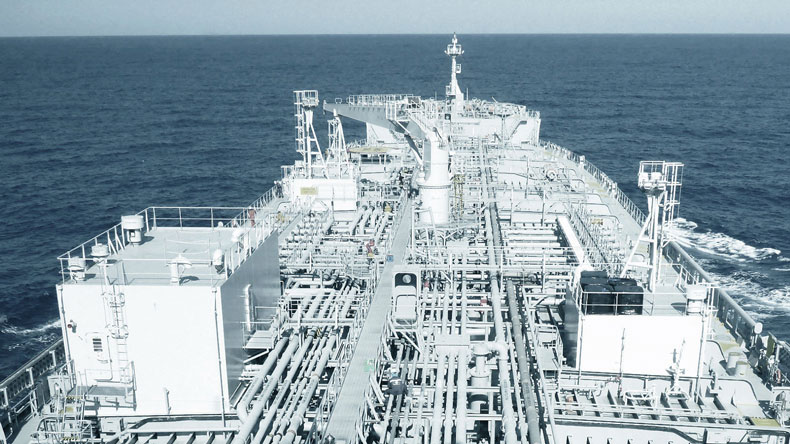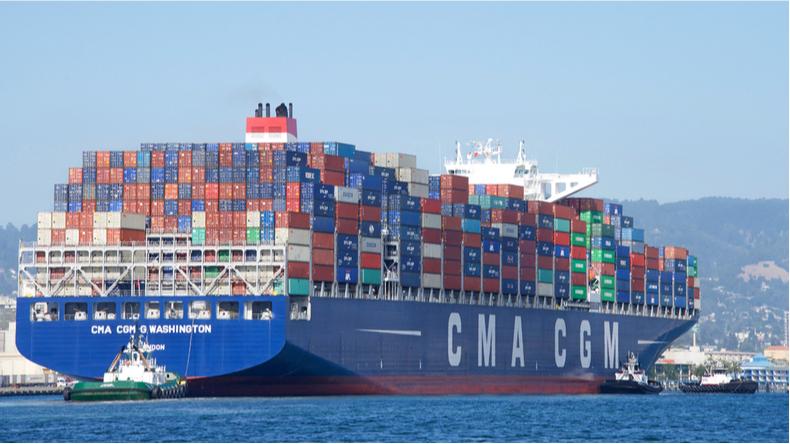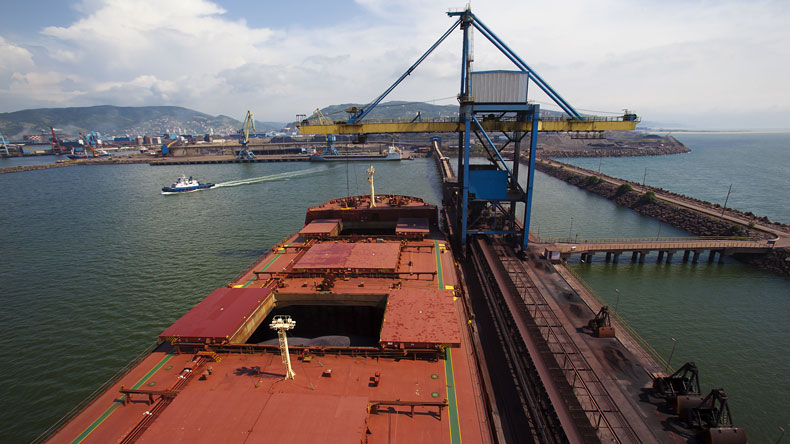Weekly briefing: Greek tankers fall foul of sanctions, signs of recovery in China
Shipping digitalisation rears its head again, while bauxite appears to be keeping the dry bulk capesize market supported
The US has blacklisted several Greek tankers after they were adjudged to have breached sanctions, while China’s ports are seeing a surge in domestic traffic as the country’s economy begins to emerge from the worst effects of the coronavirus outbreak
THIS weekly briefing provides sector-by-sector coverage of the biggest news and analysis in shipping, direct from the Lloyd’s List team.
Follow the links within the text to the relevant news items in each market segment.
Tankers
Four Greece-managed tankers have been placed on the US’ blacklist for continuing to operate in the Venezuelan oil sector, following recent warnings from the Treasury Department’s Office of Foreign Assets Control (Ofac).
At least one of the shipping companies targeted has been informed by its flag state, the Marshall Islands, that the tanker will be deregistered immediately.
The vessels that have fallen foul of US scrutiny were named as the 2007-built aframax Athens Voyager, the three year-old suezmax tanker Chios I, and two very large crude carriers — the 2006-built Seahero and the 2003-built Voyager I.
The companies managing the vessels include names that are among the most prominent in the industry.
According to Lloyd’s List Intelligence, the tankers are respectively managed by Chemnav Shipmanagement, Dynacom Tankers, Thenamaris and NGM Energy. Lloyd’s List has approached each of the companies for comment, but executives did not respond by the time of publication.
Ofac did not provide details of when and how the vessels were adjudged to have breached sanctions.
The blacklisting comes around two weeks after the Trump administration issued long-awaited new global industry guidance for the international maritime sector, including detailed best practices to detect deceptive shipping activity. The guidance was recently discussed in a Lloyd’s List podcast.
The action against the Greek vessels also comes just days after five Iranian tankers owned by the sanctioned National Iranian Tanker Co arrived in Venezuela delivering gasoline, despite threats from the US to prevent the shipments.
In regard to deceptive shipping activity and the new US guidance, Panama, the world’s largest flag state with around 225m tonnes and 9,300 vessels under its supervision, this week said it would fine ships in its fleet up to $10,000 or even revoke their registration if they deliberately turn off or interfere with their signal transponders.
The move appears to be in direct relation to the new US sanctions guidance, although tanker owners’ association Intertanko warned against using Automatic Identification System alone as a tool to detect deceptive practices as “seamless monitoring cannot be guaranteed or error free”.
Finally, after appearing a couple of weeks ago to be on the wane, tanker floating storage volumes again hit a new peak in the week ending May 29. Approximately 278.2m barrels is tracked on 239 tankers at anchor for 20 days or more, according to Lloyd’s List Intelligence data.
That figure is reduced to 207.7m barrels after Iran-controlled or owned tonnage is removed as it is unable to trade because of US sanctions.
Containers
After the relentless buffeting container shipping has received from the headwinds of the coronavirus pandemic, carriers will have breathed a small sigh of relief during the past week as the news began to flow away from what has been the defining story of the year.
That is not to say the impact of the pandemic has eased; far from it. Singapore’s Pacific International Lines confirmed that it was looking at a potential investment from sovereign wealth fund Temasek to tide it through the troubled times ahead, and Oslo-listed tonnage provider MPC Containerships warned that it was in talks with lenders about liquidity pressure caused by the coronavirus pandemic, putting the Oslo-listed company at risk of covenant breach.
But in China, where the pandemic first emerged and was first brought under control, there were the first tentative signs that the end of the beginning may have arrived.
Research from the International Association of Ports and Harbors’ virus group and the weekly results from its port economic impact barometer showed that Asian ports were starting to return to normal operations ahead of their European and North American counterparts.
While the international trades remain constrained by large numbers of voyage cancellations, as carriers reduce capacity to meet constrained demand in importing countries, China’s ports were seeing a surge in domestic traffic as the country’s economy began to emerge from the worst effects of the pandemic.
Even on the transpacific trade, hard hit my the lockdown measures in the US, there were signs of change, with Zim launching a rapid transit service to capitalise on the need for speed in ecommerce transactions as shoppers took to their keyboards instead of the malls.
And digitalisation, the buzzword of better times, reared its head again, with the announcements that DP World was joining the TradeLens blockchain platform developed by Maersk and IBM, and that the Digital Container Shipping Association had released the first of three standards designed to improve interconnectivity between smart container devices.
And there was even time for the green agenda to emerge from the mire again, as CMA CGM chief executive Rodolphe Saadé committed the French carrier to becoming carbon neutral by 2050. The pandemic, he said, had shown that a new form of globalisation was emerging, one that needed to balance economics and social development while respecting humanity and protecting the planet.
If that can be achieved, then at least something positive will come out of the misery that has been 2020.
Dry Bulk
Bauxite trades appear to be keeping the capesize market supported, with marginal improvements during the week.
The Guinea to China trade continues to be one of the most bullish in the dry bulk market, with an average of 31 capesize shipments a month so far this year, according to shipbrokers Braemar, which noted that more very large ore carriers were starting to be used, including some of the converted very large ore carriers.
The brokerage remained confident on the long-term growth prospects of the trade, although in the short term it expects shipments to dip in the third quarter of the year during the West Africa rainy season.
Elsewhere, activity from Canada to China has increased, sending a more positive note to the Atlantic basin after many months of weak prospects as spot capesize cargoes from Brazil were reported to be sporadic.
But, the outlook for the overall dry bulk sector is seen as negative for this year, despite the Chinese government’s stimulus package of an equivalent of $500bn. Although the measures could help the dry bulk market as they are aimed at infrastructure and housing projects, it may be a matter of months before any real impact is seen. The package is far lower than the US stimulus announcements.
According to shipping association BIMCO, trading in all commodities is expected to fall this year, even the grains trades, as a direct result of lockdown measures and slowing economies. The International Energy Agency estimates that coal demand, for example, will drop by 8% in 2020, because of lower electricity use from reduced manufacturing activity.
BIMCO thus expects average fright rates to be in loss-making territory in 2020, as vessel supply continues to outstrip demand with the demand side skewed to the downside from the coronavirus impact.
Meanwhile, kamsarmaxes have overtaken panamaxes as the most commonly used class of carriers to transport grain between the world’s top exporting and importing countries.
This is a landmark shift in global commodity trade flows that energy and commodity pricing agency S&P Global Platts seeks to address by rolling out a new index dedicated to kamsarmax carriers of between 81,000 dwt and 82,000 dwt.
Pradeep Rajan, head of Asia Pacific shipping and freight at Platts, told Lloyd’s List that kamsarmaxes were being used to transport about 65% of global grain trade, clearly displacing the 74,000 dwt panamaxes.
Did you miss our latest ATA webinar?
Our latest Ask the Analysts webinar focused on the outlook for markets in Asia, offering insights on the macro outlook, counterparty risk concerns, dry bulk, box and tanker trade lane updates, shifting market dynamics and how the coronavirus pandemic is affecting the trading relationship between China and the US.
If you missed it, you can still watch on demand once you have registered your details. Follow this link to go to the landing page and complete the form.



